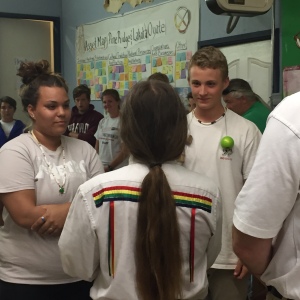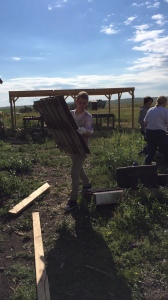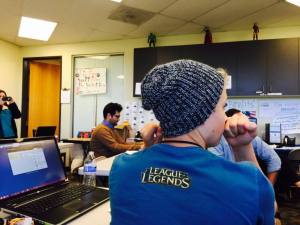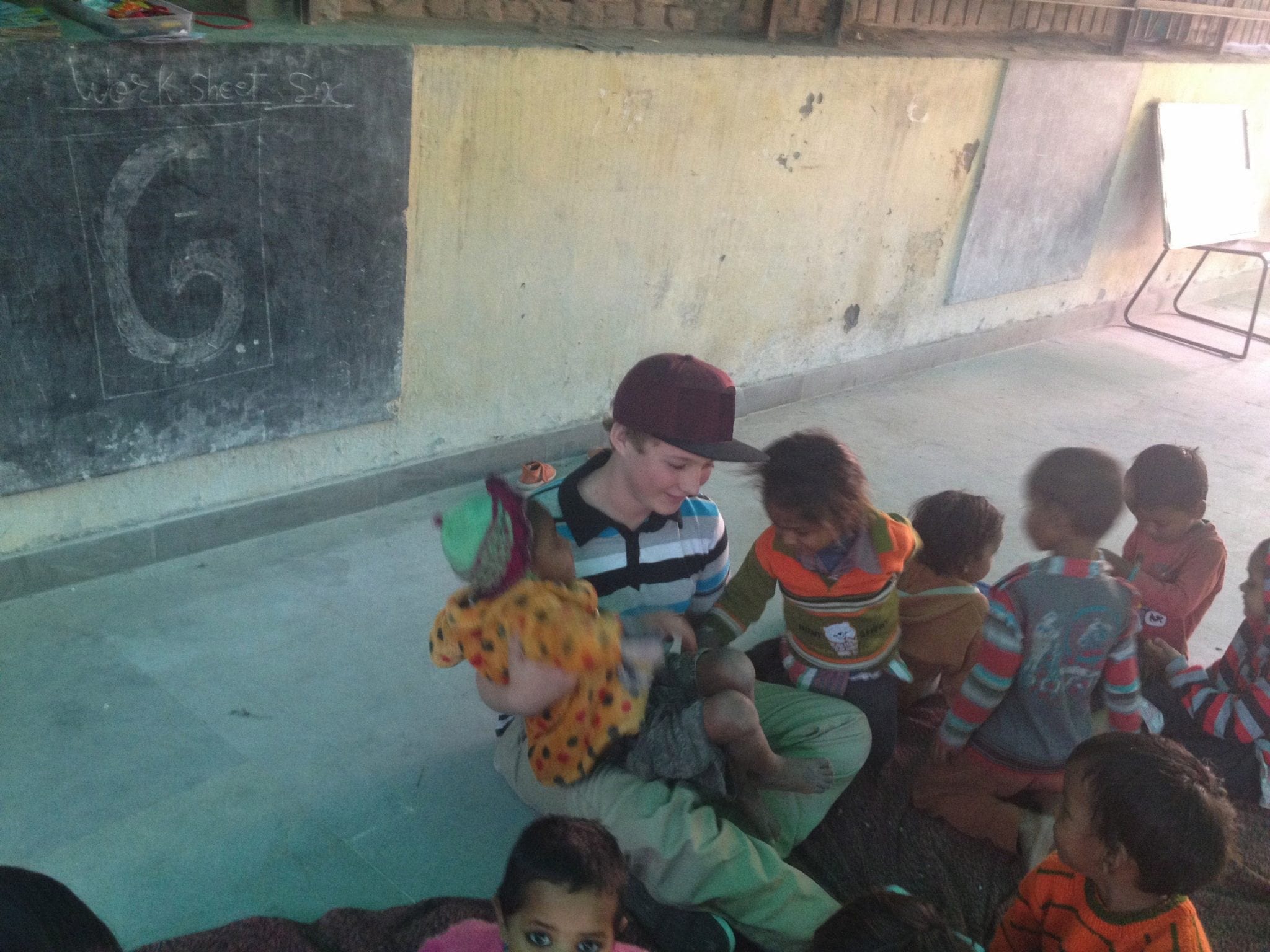Choosing a Service Project
I think I came out of the womb as a save the world type. I was known early on as the family idealist. My mother would tell the story of me at 2 years of age out in the driveway on a rainy day picking worms off the pavement to put back in the grass, something I still do today. At the age of 11, I volunteered for the first time, canvassing door to door for George McGovern’s presidential campaign. I have volunteered for most of my 44 years since then, working on service projects ranging from those focused on helping people, political issues and candidates, education, and helping animals and the environment. Based on my passion for volunteering, it was a given that service projects were going to be a part of our homeschool journey.
You don’t have to have been volunteering as long as I have to make service projects a part of homeschooling at your house. All you need is a desire to make a difference, a willingness to help out through volunteering, and time. Based on my experiences, I wrote a set of guidelines to help you get started incorporating service projects in your child’s eclectic, academic education.
Blair’s Tips for Choosing a Service Project
1. Choose a Service Project That is a Good Fit for Your Family
Be true to your family, your child, and you!

• If you do not want to volunteer on a project under certain situations be clear about it before committing. We are secular, academic homeschoolers, and we consider the service projects to be part of our homeschool. Before we volunteer, I contact the organization and ask if they allow proselytizing. We only participate in those that do not. This is not to say that prayer does not take place at some. There will be other volunteers and group leaders who regularly pray. My husband has volunteered for Habitat for Humanity on a project near Pueblo, Mexico. The group leader on the project was a pastor and prayed with the group daily.
• Dietary restrictions or health issues: Do any of you have nut allergies or gluten intolerance? Are you vegetarian or vegan? Does someone in your family have asthma? All of these should be addressed early. Sometimes it is not convenient for you to bring your own food or to get any when there. I am vegan, but will eat vegetarian when on a project. If the organization is responsible for our meals, and they cannot accommodate a vegetarian eater I will not participate in that project.
• How much of the money donated goes to the actual service? This is something we address before deciding on a project. The answer doesn’t directly affect what you are doing, but it does tell you something about the dedication of the organization to service. Because we only volunteer for groups who give most of their profits to their cause, when housing and meals are included, they are not deluxe. This is important to us. For example, with the extreme poverty we observed on the Pine Ridge Reservation, I would have been offended if when I volunteered for Re-member the accommodations showed much money spent on the volunteers’ food and lodging. What they provided was healthy, basic, and exactly right.
• There is no right or wrong cause as long as you and your family find meaning from it. Our volunteering with Sean has focused on people, politics, and animal rescue. These are not the only causes we are each passionate about, but they are the primary spheres where our family passions about saving the world intersect. Just make sure it is a cause all participating family members think is worthy, so that all participate at a high level.
2. Choose a Service Project Where You Participate with Your Children.
Your volunteering might even start with your children helping you. If this is the case, you will want to choose a service projects where they can help.

• My child took it for granted he would one day volunteer. Long before I had him and for the first two years after he was born, I volunteered for a San Diego based organization called Project Wildlife that rescues orphaned and injured native wildlife. I was on the opossum team and would take him with me when I rescued opossums.
• When he was three I read at the local library for their pre-school reading program. Sean helped me select books and practice reading stories using different voices.
• These days an essential criterion when choosing projects is how old volunteers can be. For example, we recently volunteered at Re-member on the Pine Ridge Reservation because they would let someone Sean’s age participate. Habitat for Humanity has an older age requirement so Sean cannot volunteer with them. Because of that, my husband volunteers for Habitat by himself.
3. Another aspect that affects the choice of service project is the reason your family is volunteering.

• It is common for college-bound high school students to participate in one or more service projects. For those students, a service project that ties in with their academics may make more sense. A more long-term commitment might make more sense as well. This gives the student the opportunity to shine on a long-term basis, which can result in a nice letter of recommendation to include with their transcript. For students whose reason for volunteering is to flesh out their college transcript, you will want to be strategic about your choice of project.
• Is your child a save the world type? If so, you should let your student follow their muse. Even if it is not a cause you would choose, you should still support it. Even within a close family, there will be differences in what brings meaning to each person’s life. The elements of what brings meaning will change over time too. Save the world types need support, encouragement, and validation. Even though my parents did not support the same presidential candidate as I did, they supported me supporting him. They drove me where I needed to go and listened with interest when I talked about what I had done while volunteering. They were also there for me through the disappointment of his loss.
• Is there something you want your child to learn about the world? When we volunteered with Cross Cultural Solutions in Delhi, India and Re-member at Pine Ridge, South Dakota my husband and I chose those for a purpose. We want our son to understand in a meaningful way that there is poverty in the world and that small acts of kindness matter and can help. We also want Sean to understand there are people in this world who do not have access to the same opportunities he and his peers do because of their life circumstances. We wanted him to begin, in a meaningful way, applying the adage
“Be the change you want in the world.”
4. Time and travel are two important parameters to think about before deciding on a service project.
• Local service projects offer the benefit of being close to home and therefore easy to get to and schedule for. Long-term, local projects make a lot of sense if your child might use their service as a part of their transcript when they apply to college or on a job application.
• Do not discount short-term service projects if the time isn’t available to do a long-term one. For example, volunteering on Thanksgiving feeding people at a homeless shelter is rewarding and meaningful. It also helps your child understand they can make a difference in their community.
Volunteering can help your child find meaning in their life
and feel connected to others and the world.

• Projects that are not local will usually happen for a condensed period of time. The benefit of these types of projects is that they are usually more immersive programs. The two we participated in had an educational component with guest speakers which really enhanced the experience. Some local projects have an educational component too, but it is not the same as having four or five nights in a row of guest speakers all discussing issues relevant to your volunteer work from different perspectives.
• If you are volunteering out of the country, you will need to make sure you have taken care of visa requirements if they have them. You should also contact a health provider to make sure you have all needed vaccinations.
-
-
- In the country where you are a resident you will need to figure out your transportation for getting to the project.
- In or out of the country make sure your tetanus vaccination is up-to-date.
-
5. Don’t let yourself get discouraged.
When embarking on a service project, you will be filled with the promise of it. The focus is usually on how you can and will make a difference. It feels like you are about to do something big. The reality of the situation is usually smaller, and it can feel like there is nothing you can do to make a difference. This is especially true for children who volunteer. I spent time while at Re-member discussing this with one of the adults, Geordie Campbell, who had brought a large group of teens to volunteer. I was feeling despair after realizing the huge issues and will, both societally and politically, it would take to make a large-scale difference for this community. Geordie said something that resonated with me, and helped me deal with my sadness and feelings of helplessness.
“Hope versus Despair
How to stay hopeful in the context of despair and charity must be a part of all social change.
It is important to look at charity as a type of social justice.
What you are feeling, Blair, is called compassion fatigue, and it is a common problem for volunteers.
That is because the complexity of the dysfunction leads to despair.”
~ Geordie Campbell
Don’t let despair keep you from trying to be a part of social change. We like to tell Sean to make it matter that he walked on this Earth. We try to let him define what that means for him, but if everyone who was able did something they felt would make a difference, no matter how small it seemed, it would be a very different world.

• If you are going to an impoverished community prepare your children. You will have some idea what you are going into. Your children have not had the same breadth of experiences. And even with plenty of explanation before you go, compassion fatigue can be an issue you should be prepared to deal with both personally and with your children. One of the guest speakers at Re-member, Will Peters, said “Just because someone will be hungry tomorrow does not mean you shouldn’t feed them today.” Help your children understand that “feeding” someone today might seem so small you are not making a difference, but it does make a difference for the hungry person.
• Don’t make value judgments based on where you are at in your life. When you are volunteering make sure you keep your own expectations and presumptions out of the equation. If you find yourself thinking you would behave differently, or do something differently, realize that is you thinking from the perspective of where you are now. The truth is much more complicated. None of us has any idea what we would do in a situation unless we have been in it.
6. Be prepared to pay for your food, lodging, transportation, and often materials.
The three service projects that were away from home that my family has participated in all had fees we paid in order to participate. Many participants use raising the money for the project as a part of the journey.
7. Be prepared to “shovel poop”!
Poop used to “ick” me out so much, and then I volunteered for the Humane Society and Project Wildlife. I am using shoveling poop as a metaphor for doing things outside of your comfort level, whether it is ticks on dogs, spiders under houses, pooping in a hole in the ground in a space with only three walls, covering your hair, or anything else along those lines. You need to let these things go and not fixate on them. You are going to have to help your children do the same. You are there to serve. It is not about you. If your child has something they absolutely cannot deal with, spiders for example, discuss this with the organization before signing up for the project. These projects need volunteers to come and work. When you get there they do not have the time to fuss with volunteers’ idiosyncrasies and pet peeves. They are too busy coordinating the work on the project.
8. Homeschoolers have much more control over the courses and coursework used as a part of their child’s academics.

Homeschoolers should take advantage of this and use the service project as a part of their academics. Learning more about the project and intended benefits of it helps your child understand their service in a larger context and helps them make connections from their volunteering to the world at large. It also gives them knowledge they can use to educate others about these issues. My child has learned about Native Americans, opossums, educational issues in India, and politics. This year he will work on two service projects. Sean spent six days volunteering for Re-member, and he will spend 12-months, all of 2016 volunteering on a Presidential campaign.
• Before going take the time to learn about the project, area, and organization. Before we went to Re-member for example, my family:
-
-
- Watched movies about the Lakota both documentaries and historical fiction
- My husband and I read books and articles that we discussed and shared parts of with Sean.
-
• In preparation for volunteering on a Presidential campaign, Sean is taking two American Government courses before volunteering on a Presidential campaign. He has already been watching speeches as candidates declare that they are running. He has chosen the political issue that is the most important to him without us telling him what the issue most important to us is. After researching the issues being discussed by the candidates, he decided the most important political issue is income inequality. He is learning what each party’s platform is and where the various candidates stand on them. He reads articles about the candidates, watches the debates, listens to town hall meetings, and is in the process of choosing the candidate he wants to support. All of this is ongoing. Some of these will be completed before he starts volunteering and some will not.
• After volunteering discuss the big issues and take home messages. What you see and learn can take time to process. Continue to discuss these issues with your child and help them give voice to what they saw, did, and felt for months after the experience. This helps your child to be an advocate for change in this area.
9. Keep good records.
Adults usually volunteer without keeping records. You should keep good records for your child. They can use their service when applying for jobs and to college. You can use photos and written accounts. If you are not volunteering with your child, you should help them with record keeping. It makes sense to have kids write their own journal about their service. If you do this though, you should read over what they wrote for completeness. Make sure, if incorporating the project into a high school student’s transcript, to use key words when writing about it that tie in with other coursework. His service at the Lakota Reservation and on the Presidential Campaign will emphasize the historical context of both, since I am considering them to be a major component of 10th grade history.
The records should include
-
-
- what was done
- the hours spent doing it
- name and contact information for person in charge of the project they worked on
- information about the organization
-
Our children are growing up in a big complicated world. Listening to the news and online there is a lot of discussion about the problems in it, without much constructive discussion about how to solve them. Many of the kids I meet feel frustrated with these problems, and they don’t see how they can help fix them. Volunteering on service projects that are meaningful to kids does two important things; it helps the world and gives kids a positive outlet to help fix it. With hard work, thoughtful service, and small acts of kindness, we can save the world empowering our children to be good stewards of it at the same time!
 Blair Lee M.S. is the the founder of Secular, Eclectic, Academic Homeschoolers. When she’s not busy doing these things, she’s busy writing or working on service projects. She is the author of the critically acclaimed Real Science Odyssey Biology 2 and Chemistry 1, http://www.pandiapress.com/publications/real-science-odyssey/. She is currently working on Astronomy and Earth Science 2 for the series.
Blair Lee M.S. is the the founder of Secular, Eclectic, Academic Homeschoolers. When she’s not busy doing these things, she’s busy writing or working on service projects. She is the author of the critically acclaimed Real Science Odyssey Biology 2 and Chemistry 1, http://www.pandiapress.com/publications/real-science-odyssey/. She is currently working on Astronomy and Earth Science 2 for the series.
Here are links to the four service projects mentioned above:

